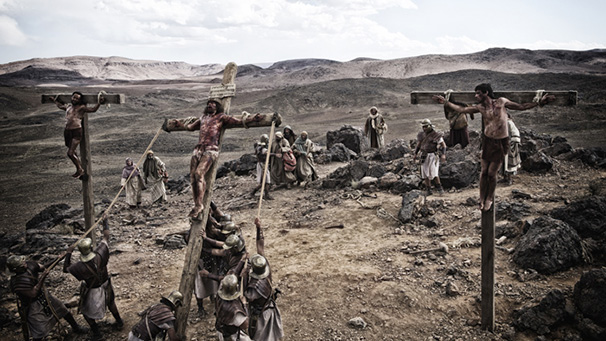
As blockbusters continue to break Hollywood’s bank accounts, producers scramble to find projects that appeal to the largest possible audience. The latest cash cow seems to be the most revered of texts — the Bible. Four religious-themed films will hit theaters this year, and more are currently in development.
Art has explored religious themes and has told religious tales for centuries. Film is no different. The silent era immediately saw retellings of stories from Genesis, Exodus, the Gospels and more. D.W. Griffith’s “Intolerance” in 1916, Cecil B. DeMille’s “The Ten Commandments” in 1923 and Michael Curtiz’s “Noah’s Ark” in 1928 were all successful.
However, the 1950s were the golden age of the religious epic. The first widescreen film, “The Robe,” featured early Christians affected and converted by Jesus’ robe. Other films released included “Quo Vadis,” “The Big Fisherman,” “Sodom and Gomorrah,” “Barabbas” and “Esther and the King.” The fad quickly ended following the failure of George Steven’s 1965 film “The Greatest Story Ever Told,” with its stunt casting and challenging shoot making it the most expensive movie ever made in the United States.
The genre has lain mostly dormant since. Mel Gibson’s notorious “The Passion of the Christ,” a depiction of the crucifixion almost as excruciating as the event itself must have been, was hyped to launch a new wave of Biblical epics. But the failure of Catherine Harwicke’s 2006 “The Nativity Story” killed the trend in its cradle.
This year will provide films centered on Jesus, Noah and Moses. “Son of God,” based on t
he History Channel’s successful miniseries “The Bible,” will be released in February. Darren Aronofsky’s hugely hyped “Noah,” with Russell Crowe as the survivor of the flood, arrives the month after. Debuting in December is Ridley Scott’s “Exodus” with Christian Bale as Moses.
These movies, however, have a long uphill battle ahead of them. The stories have been famous for centuries and thus have been told and retold hundreds of times. Why rehash them again now?
The argument for more retellings is less in the telling and more in the tellers. Viewed from the standard angle, we think we know everything about a story, but perhaps a new perspective will prove us wrong. Yet when you try something different with material that people have constructed their lives around, there runs the risk of backlash.
Sensitive subject matter can cause hesitation even today. After mixed reviews from religious groups at test screenings, tensions rose between Aronofsky and “Noah” distributor Paramount Pictures. Worryingly, this could result in a watering down of the director’s point of view.
Though probably profitable “Son of God” is a particularly redundant exercise, as it is made up of footage from “The Bible” re-cut into a feature length to be released to cinemas. It’s for this reason that many Christian-made faith-based films almost never travel beyond their target audience. Only time will tell if April’s “Heaven Is For Real,” a rare mainstream faith drama based on a book about the spiritual implications of a young boy’s near-death experience, will attract audiences.
Fresh vision has the most potential to re-illuminate Bible stories, but without that new energy we may never be interested enough to revisit the genre. Faith rewards, but it must be the kind that opens instead of closes our eyes.
J.R. Hammerer is a staff writer. Email him at [email protected].
























































































































































